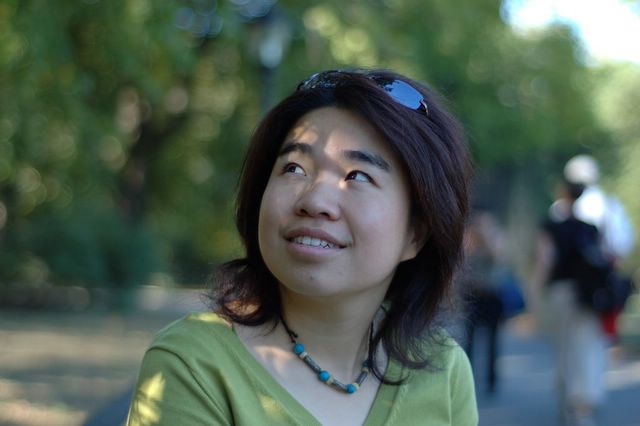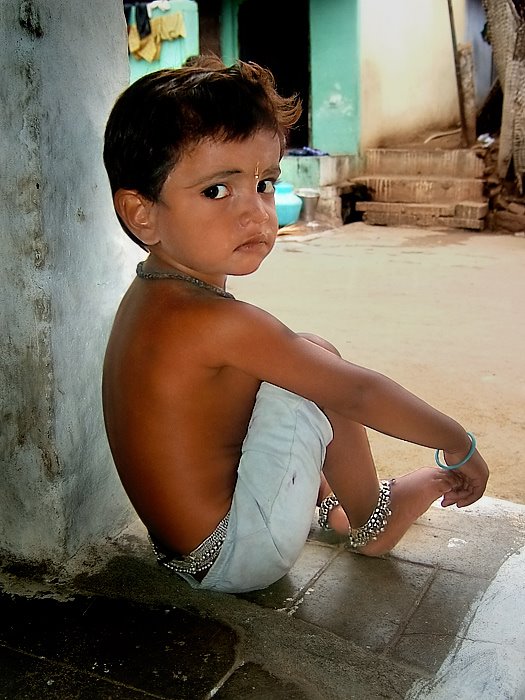
April 14, 2007
Chinese Composer Talks Cello, All Dialects
By ALLAN KOZINN
As Huang Ruo originally conceived it, his new cello concerto, “People Mountain People Sea,” was to have started not with music but with a recorded voice — Mr. Huang’s — speaking in a made-up language, accompanying projected photographs of China in the 1920s. The photographs, by Sidney Gamble, inspired the piece, but after spending an afternoon in a studio recording his speech and trying out this multimedia introduction at the Miller Theater, where the work is to have its premiere tonight, Mr. Huang decided to drop it.
The concerto proper, however, should be no less idiosyncratic without this quirky introduction. Mr. Huang, at 30, writes music in which Western techniques and Chinese timbres, tunings and folk styles mingle, and which often (as in this concerto) require carefully choreographed movements from the ensemble. The work’s title is a direct translation of a Chinese expression that in more idiomatic English translates as “a lot of people.” And people, Mr. Huang said, is what the piece is about.
One reason he chose to write for the cello in this contribution to the Miller Theater’s three-year Pocket Concertos series is that he hears the instrument’s voice as almost human.
“I have always had this thing about the cello,” Mr. Huang said at his Midtown Manhattan apartment. “It can play up in the violin’s range, but it also has a range where the violin cannot go. It reminds me of one of my favorite Chinese instruments, the ma tou qin, or horsehead fiddle. I’m always listening to that. It has a very manly sound, very nasal, very organic. And that sound is there, in this piece. I use a lot of open-string double-stops to get this very earthy sound, which I have always liked.”
To suggest the sound of the horsehead fiddle, Mr. Huang has adorned his score with sliding grace notes and bent pitches.
“It’s in standard notation, but the slides and out-of-tuneness are everywhere,” he said. “You know, in China, we never talk about ‘in tune’ or ‘out of tune.’ I think it’s a very Western thing.”
He also had a soloist in mind: Jian Wang, who can be seen playing Bach, as a child, in “From Mao to Mozart,” the 1981 film about Isaac Stern’s visit to China. Now 38, Mr. Wang — who, unlike Mr. Huang, has reversed his family and given names in the Western fashion — has a promising international career.
Mr. Huang was born in 1976 on Hainan Island, in southern China, and grew up in Guangzhou, not far from Hong Kong. His father, Huang Ying-sen, a composer for film and television, insisted that his son follow in his footsteps and began teaching him the piano. The young Mr. Huang didn’t like it much, not least because he was prone to memory slips.
“When I played my own music,” he said, “no one could say I played wrong notes because only I knew the piece. So that was my starting point toward becoming a composer, although I told myself I was going to be a composer because my father told me I would.”
When Mr. Huang was 12, in 1989, his father took him to Shanghai to audition at his own alma mater, the Shanghai Conservatory, where the young Mr. Huang was accepted as a composition student at a time when new musical influences were beginning to be heard in China.
“I grew up in a China where people started to wear bluejeans,” Mr. Huang said, “and where we would listen to Bach at the same time as pop songs. It could be Michael Jackson, it could be the Beatles. And Stravinsky’s music came to China. I remember hearing ‘The Rite of Spring’ and thinking, ‘My, I haven’t heard anything like this before.’ So for me, there are no differences, no hierarchy. I don’t think of Bach as being greater than a contemporary composer just because Bach is someone everyone should look up to.”
Mr. Huang came to the United States in 1995, after he won the Henry Mancini prize at the International Film and Music Festival in Switzerland, as well as a competition at the Oberlin Conservatory of Music in Ohio. Oberlin promised him a full scholarship if he could pass its English entrance exam. That took several tries and nine months of English courses in Los Angeles, but he completed his bachelor’s degree at Oberlin and moved to New York for postgraduate work at the Juilliard School.
He has established himself quickly. Another competition victory in 2000 led to a performance of his “Three Pieces for Orchestra” by the Philadelphia Orchestra. Since then, his list of works has expanded substantially, with music for orchestra, chamber ensembles, solo instruments and voice. His four chamber concertos, which made a powerful impression when they were performed at the Miller Theater in 2003, have just been released on CD by Naxos.
Mr. Huang joins a parade of Chinese composers whose hybrids of Chinese and Western styles have found success in the United States. But where composers like Bright Sheng, Tan Dun, Zhou Long, Chen Yi and Ge Gan-ru grew up during the Cultural Revolution (1966 to 1976) and were affected by it, Mr. Huang was born just as that period of suppression ended. That has created a striking difference of perspective between Mr. Huang and Chinese musicians only slightly older.
Mr. Wang, the cellist, sees Mr. Huang’s new concerto in almost political terms that Mr. Huang — while not rejecting them — said he didn’t have in mind.
“In Chinese, ‘People Mountain People Sea’ is like a proverb to us, who grew up after the People’s Republic was founded,” Mr. Wang said in an e-mail message. “It was used very often during the Cultural Revolution to convey a sense of people power. However, to me, and to many other Chinese people, these words also convey a sense of reinforced sameness, suppression of individualism and being part of something so big that no one is noticed. I feel, correctly or not, that this concerto is about that.”
Mr. Huang, who received a copy of the e-mail, said he was surprised but pleased by Mr. Wang’s reaction.
“What he says is totally right,” Mr. Huang said, “but I did not intentionally write about any particular period or even just about Chinese people. The piece is a more general look back at history. For me, the goal is for people in the audience to hear the music with whatever experience they bring to it. No matter what country, people are people. They may suffer, or crave a peaceful life, or enjoy the moment, or get emotional. All this is in the piece. It’s about a lot of people, doing the same thing or doing different things.”


没有评论:
发表评论